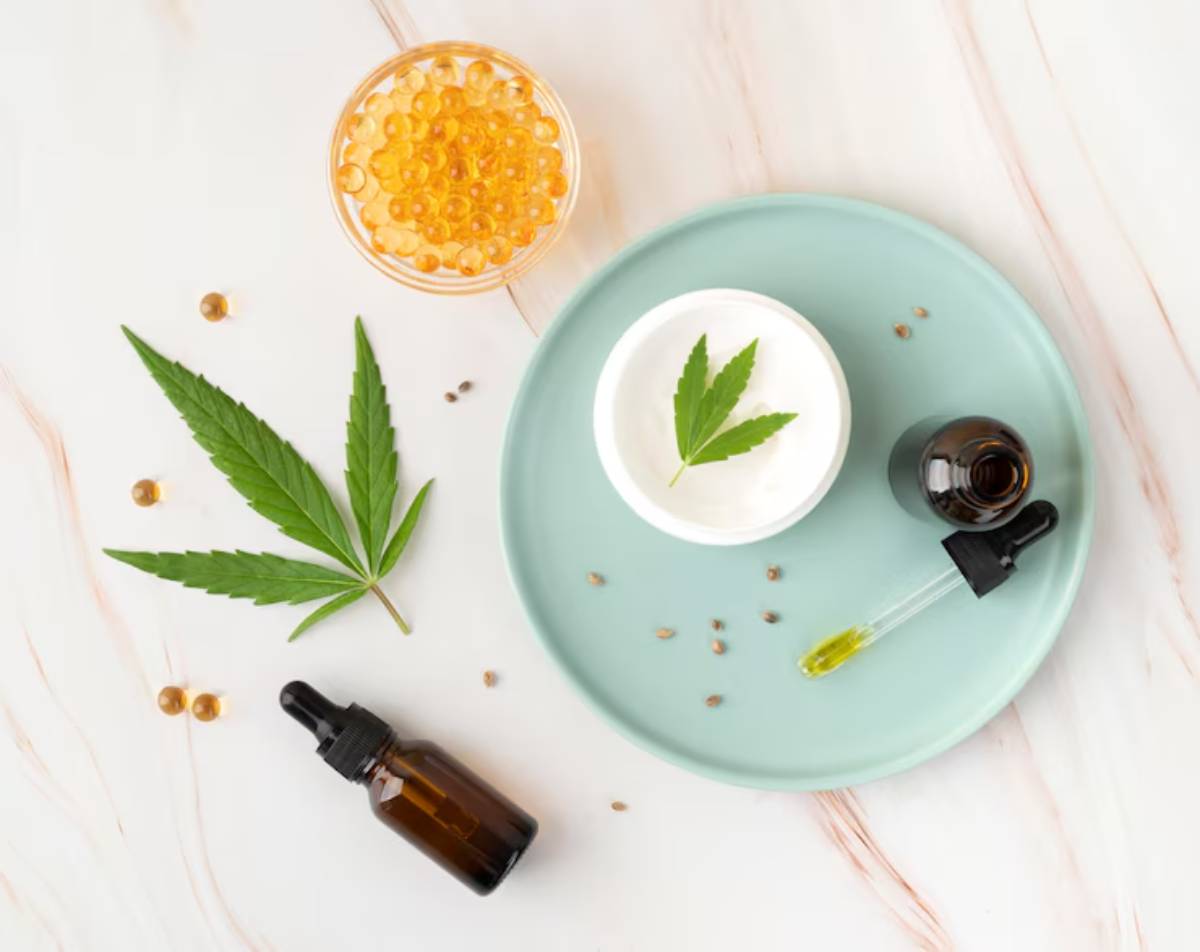The Health Blog

Understanding the Effects of CBD on Sleep
Not every sleepless night has an obvious cause. Sometimes the body feels tired, but the mind just won’t settle. Other times, it’s stress, pain, or just the lingering restlessness that comes with modern life.
In recent years, more people have turned to natural sleep remedies in search of better rest — something gentle, plant-based, and supportive. One name that continues to stand out in this conversation is CBD.
Short for cannabidiol, CBD has become a popular option for those exploring alternative ways to manage stress, anxiety, and yes — sleep. But how does it actually work? Is it effective? And is it safe to use at night?
Let’s explore the growing research, the personal stories, and the science behind CBD sleep benefits.
What Is CBD?

CBD is a natural compound found in the cannabis plant. Unlike THC — the compound known for causing a “high” — CBD is non-psychoactive. It doesn’t alter the mind or mood in an intoxicating way.
Instead, CBD interacts with a network in the body known as the endocannabinoid system. This system plays a role in regulating sleep, mood, appetite, and the body’s response to stress.
By gently influencing this system, CBD helps the body find a state of greater balance — which, in turn, may support healthier sleep patterns.
CBD and Sleep: What’s the Connection?
CBD doesn’t act like a traditional sedative. It doesn’t “knock you out.” Instead, it works with the body’s own processes to create the right conditions for rest. Here’s how:
1. Reduces Anxiety and Calms the Mind
One of the most common reasons people struggle with sleep is an overactive mind. CBD has shown potential in calming the brain’s stress response, reducing anxiety, and quieting racing thoughts — especially helpful when trying to fall asleep.
2. Eases Physical Discomfort
Pain and inflammation are major sleep disruptors. CBD’s anti-inflammatory properties may help reduce pain, making it easier for the body to relax and stay asleep through the night.
3. Supports Natural Sleep Cycles
CBD appears to help regulate the body’s sleep-wake cycle, known as the circadian rhythm. Some studies suggest it may increase total sleep time, especially in people dealing with chronic stress or insomnia.
Together, these effects highlight how cannabidiol for insomnia works best not by sedating the system, but by reducing the barriers that prevent good sleep in the first place.
What the Research Says

While more large-scale studies are still needed, early research on CBD and sleep has been promising:
- A 2019 clinical study showed that 66% of patients who took CBD reported improved sleep within the first month of use.
- Other small trials have found that CBD may help people fall asleep faster, particularly those with anxiety-related sleep issues.
- Some research suggests low doses may promote alertness, while higher doses may support longer and deeper sleep.
It’s important to note that results can vary. What works well for one person might not work the same for another. But overall, the potential of CBD sleep benefits is gaining serious attention.
Who Might Benefit from CBD for Sleep?
CBD may be especially helpful for people who:
- Struggle with falling asleep due to anxiety or stress
- Wake up frequently during the night
- Experience pain that disrupts sleep
- Have inconsistent sleep schedules
- Are seeking a non-habit-forming alternative to sleep medications
For many, it’s not just about sleep — it’s about finding a calmer rhythm to end the day. That’s where CBD shines.
How to Use CBD as a Natural Sleep Remedy

The key to using CBD effectively for sleep is finding the right type, dose, and timing.
Choosing the Right Form
CBD comes in many forms. Each one works a little differently:
- CBD Oil/Tinctures: Absorbed under the tongue and act quickly — ideal for bedtime use
- CBD Gummies: Easy to take and often combined with calming herbs like chamomile or melatonin
- Capsules: Convenient and pre-measured
- Topicals: Applied to areas of pain but may not impact sleep directly
- Vapes: Fast-acting but not recommended for sleep due to potential lung irritation
For most, oils or gummies taken 30–60 minutes before bed provide the best results.
Starting with the Right Dose
There’s no universal dose. It often depends on body weight, sensitivity, and what’s causing the sleep trouble.
General tips:
- Start low — even 10–20 mg is enough for many beginners
- Increase slowly if needed, based on how the body responds
- Use consistently for a few nights to notice effects
Keep in mind that more isn’t always better. Some people feel sleepy at lower doses, while higher amounts can be stimulating.
How to Create a Bedtime Routine with CBD
CBD works best as part of a full natural sleep remedy routine. Here’s a calming bedtime flow to try:
1 hour before bed:
- Dim lights and reduce noise
- Turn off screens or switch to warm night mode
45 minutes before bed:
- Take a small dose of CBD (oil, gummy, or capsule)
- Brew a cup of herbal tea or stretch lightly
30 minutes before bed:
- Read something light or practise breathwork
- Avoid checking the clock — let time drift gently
At bedtime:
- Settle into a quiet space
- Use a guided sleep meditation if the mind feels active
- Let the body rest without pressure or expectation
CBD adds to this routine like a gentle support beam — holding everything together with ease.
Are There Any Side Effects?
Most people tolerate CBD well, especially when used in low to moderate doses. However, possible side effects include:
- Dry mouth
- Mild dizziness
- Slight drowsiness (not always a bad thing for sleep)
- Digestive upset (rare)
These side effects are usually mild and temporary. They can often be avoided by starting with a low dose and paying attention to how the body feels.
Also, CBD can interact with some medications. It’s important to check with a healthcare provider if you’re taking other prescriptions.
What to Look for When Buying CBD for Sleep
Not all CBD products are created equal. To get the most out of it, quality matters.
Tips for choosing a good product:
- Look for third-party lab testing to confirm purity
- Choose full-spectrum or broad-spectrum CBD for enhanced effects
- Avoid products with artificial colours, flavours, or unnecessary fillers
- Buy from reputable, transparent brands with clear dosage information
Reading reviews and checking certificates of analysis (COAs) can help build confidence in a product’s safety and effectiveness.
How Long Until Results Appear?
Some people feel the calming effects of CBD within the first night. For others, it may take a few days of consistent use. Like any natural sleep remedy, the key is patience and routine.
CBD isn’t a quick fix. It’s a tool to help the body find its rhythm again. The benefits often appear slowly — less stress, fewer night-time wake-ups, and a softer transition into rest.
When to Avoid or Reconsider CBD
While CBD is safe for many, it may not be right for everyone.
People who should avoid or use caution include:
- Those who are pregnant or breastfeeding
- People taking blood thinners or certain heart medications
- Anyone unsure about drug interactions — always check with a doctor first
If sleep issues are severe or ongoing, CBD may help — but it’s not a replacement for medical care. Persistent insomnia may need further investigation.
A Gentle Option for Restful Nights
CBD doesn’t promise to erase all sleep struggles. But it offers something many people are looking for — a calm, natural way to support the body’s own sleep rhythms.
It doesn’t knock you out. It doesn’t create dependency. It just helps lower the noise, soften the edges, and remind the body how to relax.
Among the many natural sleep remedies, CBD stands out for its ability to support both body and mind — quietly, gently, and without pressure.









